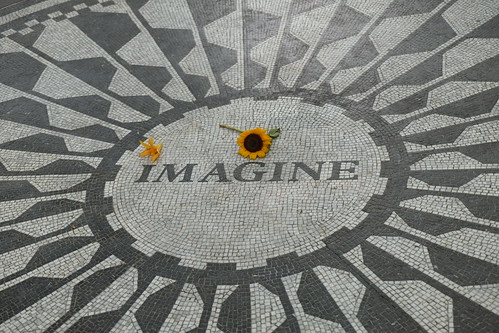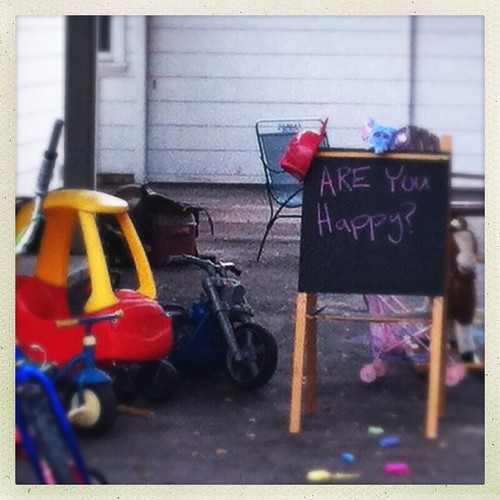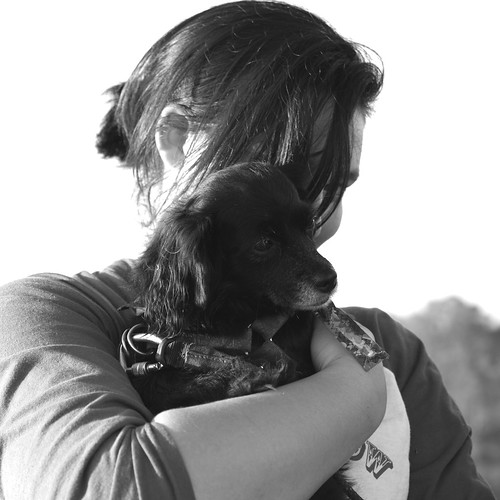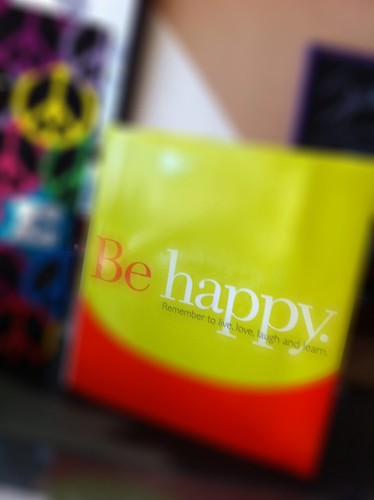Skill sees to be everywhere, and everything, it seems, is now a skill. Compassion is a skill, as you can discover in a day-long seminar with Kristen New. In a recent Psychology Today post, Dan Mager argued that gratitude is a skill,” and “we can profit immensely by learning and practicing it.” (He’s not the only one.) Howard Rheingold contends that “attention is a skill that must be learned, shaped, practiced,” and that “this skill must evolve if we are to evolve.” Creativity is not a gift from the muses, Linda Naiman argues, but “a skill that can be developed.” Courage is a skill. Stillness is a skill, according to the Greater Good Science Center’s Christine Carter, and one that “as a culture we’re not practicing… much these days.” Likewise, according to sociologist Nathan Palmer “imagination is a skill.”
Even happiness gets the skill makeover. Buddhist monk Mathieu Ricard, describes happiness as “Life’s Most Important Skill,” and University of Wisconsin professor Richard Davidson “happiness is a skill that can be learned.”
Or, as Jon Kabat-Zinn sums it up, “Compassion is a skill, kindness is a skill, attention is a skill, awareness is a skill.”
So what does this mean? What does it meant that many of us so easily describe these properties as “skills?” And does this preference for seeing what seem like natural and universal abilities as “skills” have any unintended consequences or downsides? (I’ve long been interested in unintended consequences.) After all, animals can demonstrate gratitude, attention, and happiness.
I’m sure that the exercise of these are influenced partly by others: my dogs mirror my emotions and respond to my cues, and so I’m sure part of what they’re doing when they look goofy-happy is trying to please me.
But you’d be hard-pressed to prove that they consider these emotional states to be skills, or influenced by skill. It seems to come pretty naturally to them.
The skills argument doesn’t counted that these actually aren’t natural. Rather, I think, it seeks to illuminate a couple other of their dimensions.
First, it highlights that while we may naturally possess a capacity for compassion or gratitude (or an occasionally-hilarious sensitivity to unfairness), we can consciously refine those abilities: as Barry Schwartz argues, because “attention is a skill,” “It has to be trained, and it has to be practiced.” We can also indirectly increase their presence in our lives. Gretchen Rubin has a hard time putting the idea that “happiness is a choice” into practice; instead, she finds its more effective to “decide what changes in my life would make me happier, and choose to make those changes.”
This also means that they aren’t inherent abilities with fixed limits; they’re improvable abilities. University of Oregon professor Frank Diaz argues that the skills perspective stands in contrast to the assumption that things like “prolonged states of undistracted and voluntary focus, are either at the mercy of environmental influences or otherwise biologically fixed.” In business, USC professor Kathleen Kelley Reardon argues in Harvard Business Review, “courage is not so much a visionary leader’s inborn characteristic as a skill acquired through decision-making processes that improve with practice.”
Third, they’re skills because improving them brings benefits. Dan Mager lists a “wide range of benefits that come with gratitude;” child therapist Sanam Pejuhesh includes “higher immune functioning, better sleep, lower blood pressure and less pain, more positive emotions, more compassion, more helpfulness, more joy and pleasure, just to name a few” among them. I could give multiply the citations manyfold, but you get the idea.
Compassion, attention, gratitude, happiness— all are skills because we can improve them; we can do so on purpose; and doing so brings benefits.
I don’t think this approach is wrong; as someone who’s writing a book on how rest is a skill, I’m obviously using this framework myself.
But I do wonder if this formulation carries hidden downsides.
In particular, the “good things are really skills” makes sense to people who did well on tests growing up, who’ve spent a lifetime studying and passing exams, and who are a bit contemptuous of the idea that we have to obey limits. Professionals make a living exercising skills, and for those who’ve grown up reading Malcolm Gladwell and the like, the rhetorical jujitsu of “this thing is actually the opposite of what you thought it was, but miraculously ends up largely confirming your beliefs” will have a comfortable familiarity.
But does it resonate with people who aren’t well-educated members of the professional class— people who maybe aren’t so good in the structured environment of the seminar room or dissertation defense or bar exam? Maybe it does, and I’m just not so sure.
I also wonder if putting the label “skill” on something is as much an exercise in validation as identification, that calling something a skill is the new calling something a kind of literacy— less a way of defining and analyzing its unique attributes, as asserting that it’s special and valuable. Lying convincingly is a skill, for example: we all know how to lie, yet some people are really good at it, exercise that skill constantly, and get clear benefits from doing so. Yet we’d be hesitant to describe lying— or aggressive seduction techniques, or a facility for scamming people— as a skill in the same way you’d call compassion a skill.
Ultimately I don’t think these are objections that sink the notion of skill, or that will make me give up the argument that we get lots of benefits from believing that rest is a skill— if for no other reason than “well-educated professionals who test well” could be described as my core demographic. But I don’t want the idea of turn people away unnecessarily, or give people with the wrong ideas about either rest or skill, or make them feel like they’re going to fail at this because they weren’t great students in high school or don’t do well on tests.







